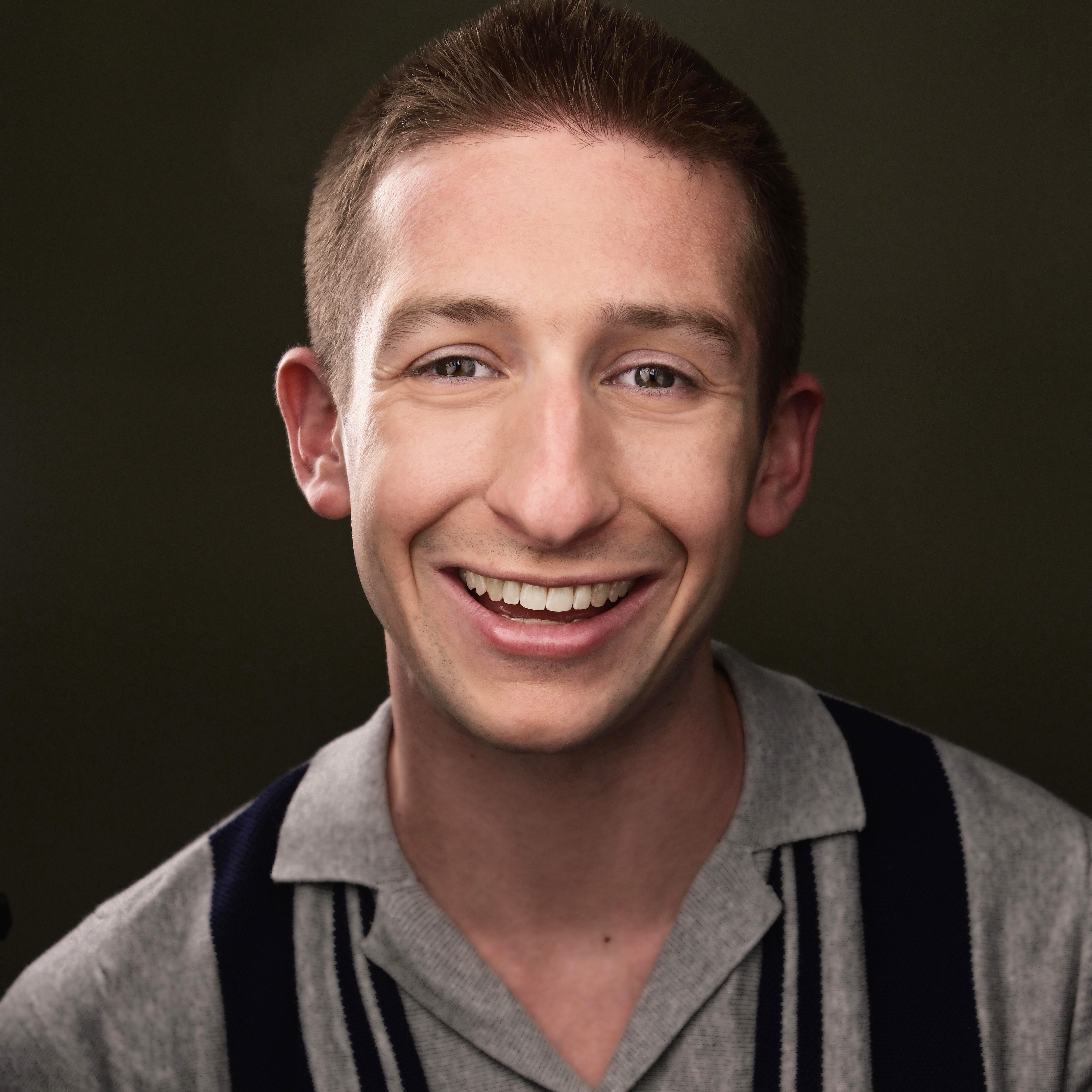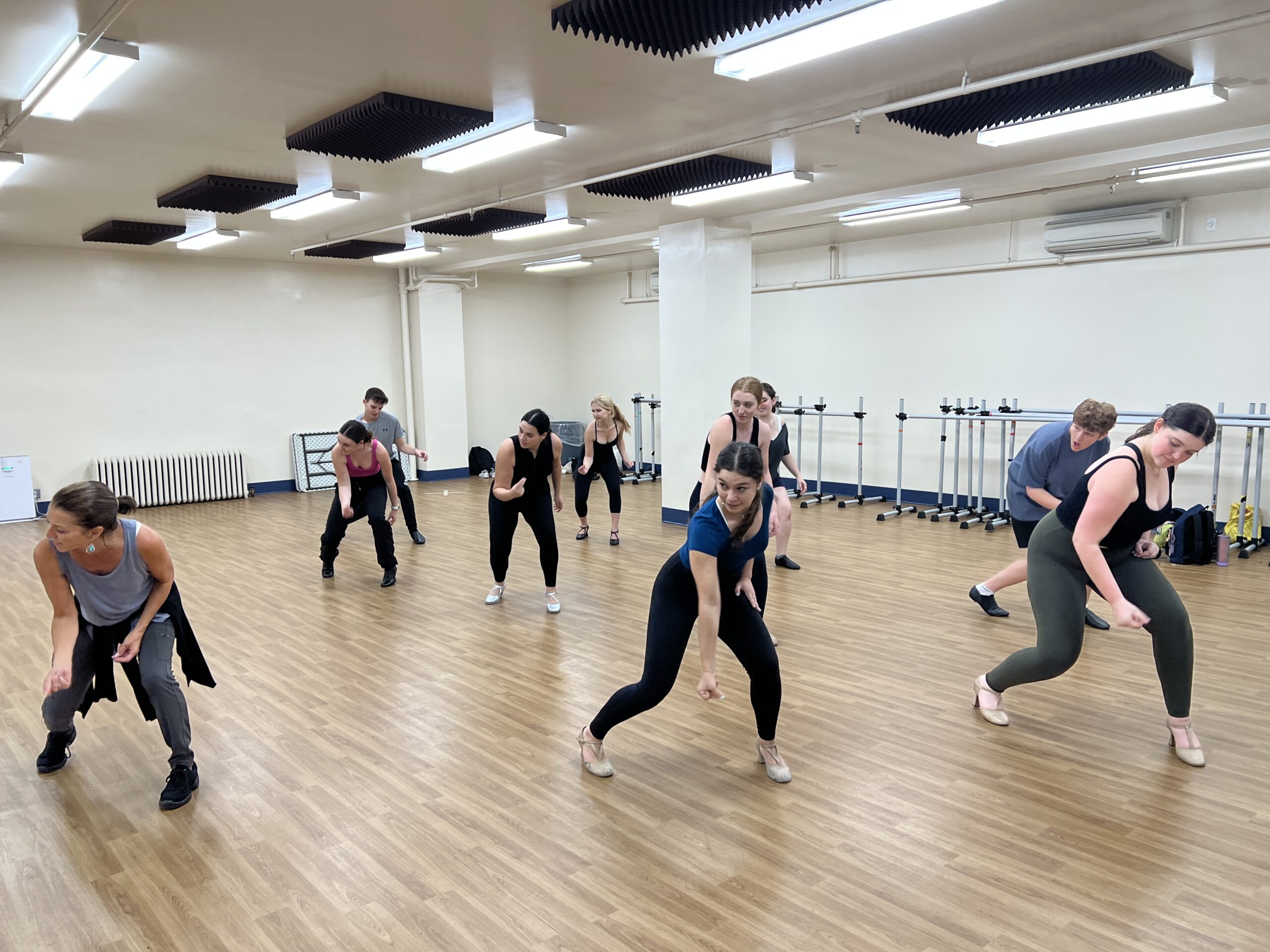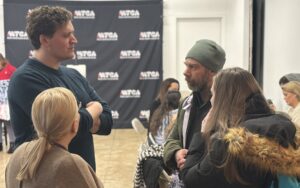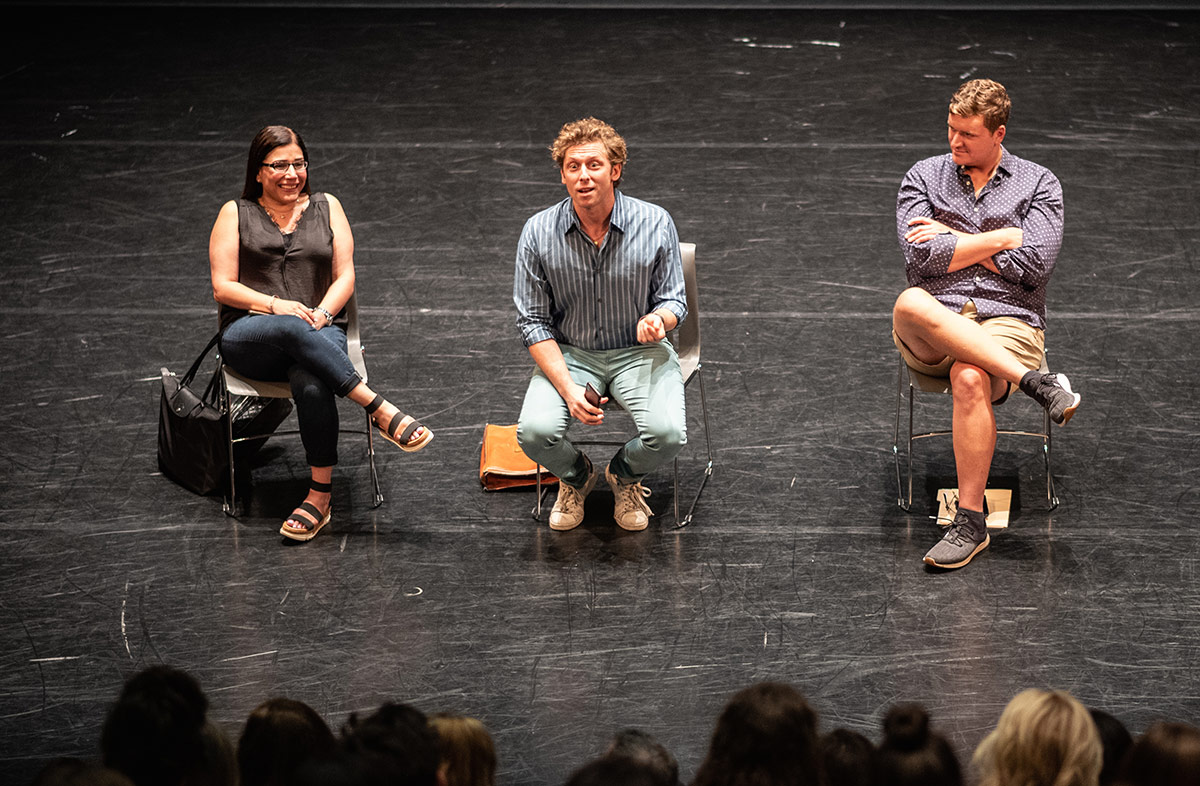Every student approaches the dance audition differently. Some students could not be more eager to share their dancing abilities, while others view the dance call as the most dreaded part of their entire college audition process. Regardless of where you fall on this spectrum, I would like to offer a few suggestions to help you give the best dance audition possible.
- 1. Stop thinking of it as a competition
Naturally, you will want to compare yourself to everyone else in the room. This is human, but the greatest gift you can give yourself is to focus on yourself and your learning. Regardless of your training, there will likely be stronger dancers than you and weaker dancers than you. All of these people are irrelevant. The only thing you should focus on is learning the material and demonstrating it to the best of your ability.
There is no first place or “best” in an audition. Yes, certain dancers are stronger than others, but the talent of another student does not disqualify you from admission or vice versa. There are many factors that play into college admission and the dance call is merely one of them. There is no set quota about how many students can be admitted from each audition. They may invite 1 student from your audition or 25 students. Getting caught up in trying to compare yourself to the other students in the room and trying to determine who will and will not get accepted is only going to compromise your audition.
The talent of another student does not disqualify you from admission or vice versa.
- 2. Demonstrate your desire and aptitude to learn
Auditioning for a college program is not like auditioning for a professional theater production. They are not casting a show with specific needs and outlooks. Instead, each school is trying to build a group of unique, diverse, eager, and malleable students that will make a meaningful impact on their department for the next four years. They are not expecting perfection from you in your audition.
If you are already perfect then there’s no reason to go to college.
What they can expect is to see how attentive you are and how much you want to learn. If you are focused and engaged with what the instructor is doing, this will resonate with them very strongly even if you don’t perform the combination and exercises at a mastery level. The faculty running the audition will recognize your vigor and remember it. It will make them think “I really liked her. She needs to work on XYZ, but she has a great presence in the room and I think it would make her a great fit.” To that end, don’t be afraid to share your personality. Do not speak out of turn or in any way be rude. But also, do not become a robot. Smile, breathe, respond if the instructor asks a question, and laugh if they tell a joke. Keep in mind, these people are deciding if they want to spend four years with you, so you want to showcase that you are a team player who is eager to grow.
- 3. Get comfortable with your individuality
No one sings the same song or delivers the same monologue the exact same way. Dancing is no different. You will not dance the combination the same way as anyone else in that room and that is a good thing. You should do your best to follow all of the clear and explicit instructions set out by the faculty. This includes counts, levels, arm placements, dynamics, and other details that are made clear in the teaching. But you are allowed (and really must) find a way to make the movement sit well on your body. It may not look exactly like the instructor, and that’s ok.
Colleges want to know who you are.
They want individuals who are ready to embrace the beauty of their own artistry. They do not want molds, prototypes, and ideas of something specific. Believe it or not, you are already a part of the future of the American Theatre! And that future will and should look different from what currently exists.
- 4. Be prepared to improvise (freestyle)
Improvisation is when the choreographer leaves a set amount of music unchoreographed and lets the dancers do whatever they wish in that time. For many, this is terrifying and uncomfortable. I know many professionals who still crumble when asked to improvise (and let this be a fair warning to you, 99% of professional dance calls involve some kind of improvisation). While improvising can feel like running naked down 5th Avenue, it is arguably the time when you are most in control of the audition.
There are no expectations, which means there are no wrong answers. Listen to the music, release your fear, and simply let your body move. You don’t have to think or edit, just move. Don’t be afraid to move slowly. It doesn’t have to be “impressive” technical or “big.” It simply shows how you hear and feel the music. If there is a storyline to the combination you can approach it from an acting standpoint of how you can move to continue to tell the story that has already been built. The worst thing you can do is stand still and look scared.
- 5. Instead of thinking “Am I good enough?” Think “Is this program a good fit for me and how/what do I need to learn?”
When I was still in undergrad and assisted in the dance auditions for the incoming freshmen, my professor began every dance call by saying that you, the prospective student, should be auditioning the school as equally as the school is auditioning you. While you are being put through your paces, take a second to consider “Am I enjoying this? Am I feeling challenged? Could a version of this be good for me over the next four years?” If the answer is, across the board, “no,” then that could be useful information for you down the line.
My professor would also say “the work begins today!” meaning that he was treating the audition more as a first class of the term. You should do the same. If the school is working with you as if you are already a student, then you can enter the space as if you have already been accepted. I say this not to instill a sense of cockiness, but rather to provide you with permission to embrace the instruction and consider how you learn. You can log your feelings about this in your audition journal. Speaking of which…
If the school is working with you as if you are already a student, then you can enter the space as if you have already been accepted.
- 6. Keep a Journal of Every Audition
Piggybacking off of the last tip, a journal is a very useful tool to help you digest how the audition went. You can do this on paper, your computer, or your notes app etc. After the audition is done and you are on your way home or back to the hotel, take 10-15 minutes to write about the day. What went well, what could have gone better, and what you might do differently to improve before the next one. Be kind to yourself and really dive into the positives, but also be truthful and acknowledge what needs work. Should you schedule a coaching session to work on picking up choreography? Did you get nervous during a particular exercise or section? The more detailed you allow yourself to be, the more clearly you will be able to process. Before your next audition, revisit the previous entries and have a plan of how to improve.
I will leave you with one last adage, and that is, regardless of how it goes, leave the room knowing you gave your personal best. Not perfection, but your best. There will always be mistakes, but if you dance freely and from your heart, you will leave the room feeling that you gave not only your sweat but also a small piece of your artistry. And regardless of the outcome, they will remember you.

Josh Zacher is an NYC based performer, director/choreographer, and teacher. A proud native of Fort Wayne, Indiana, where he graduated high school as valedictorian, Josh holds a BFA in Drama (with Honors) from New York University’s Tisch School of the Arts. As a performer, Josh served as the Dance Captain on The Prom 1st national tour, played Larry in the national/international tour of A Chorus Line (direction by Tony Award Winner Baayork Lee) and appeared in the world premiere cast of The Elf on the Shelf musical. Josh has performed and choreographed at The Kennedy Center, The Lyric Opera of Chicago (West Side Story), The MUNY (La Cage), North Shore Music Theatre (The Music Man), Tuacahn (Wizard of Oz), Seattle’s 5th Avenue Theatre, The Ordway, Kansas City Starlight (Disney’s The Little Mermaid) , The REV Theatre Co. (Footloose), Theatre By The Sea (Newsies), The Sharon Playhouse (Les Miserables), and The Wagon Wheel Center for the Performing Arts. Josh is a theatre faculty at Broadway Dance Center, a teaching artist for New York City Center, and a founding member of the New York Theatre Company.




